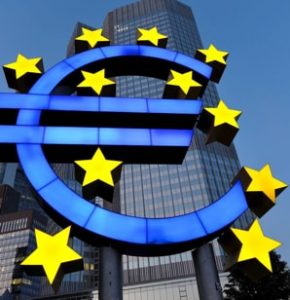


The creation project of the European Union is, without doubt, one of the greatest challenges that citizens of European countries face. Building this union in the social, economic and political sphere through dialogue, cooperation and agreement among Member States, always respecting the idiosyncrasies of European peoples, is the best way the current society can choose to deal more successfully with the challenges that the Globalized world is laying out to humanity.
The Spanish Committee of the LECE, founded in 1956 in Barcelona, contributes to defend the values and principles contained in the treaties of the European Union and aims to represent the civil society with a clearly European vocation in this process. We believe that building an “Economic Union” among the countries of Europe consolidates the social progress and welfare of all European citizens, and contributes to a better economic and social relationship with the rest of the countries of the world.
In this sense, the Spanish Committee of the European Economic Cooperation League that I have the honour to represent promotes higher levels of European integration which enable to jointly respond to the major problems of our political and social environment and contribute to other countries of the world to build a fairer society with less social differences.
I encourage you, as citizens motivated by this Europeanist cause, to get close to our institution, participate in its actions and contribute with your support and sponsorship to promote from Spain the noble cause of the construction of the European Union.
Francesc Homs Ferret
President Spanish Committee of the European League of Economic Cooperation-LECE Barcelona, November 6, 2017
Founded in 1956, the Spanish Committee of the European League for Economic Cooperation (LECE, from the Spanish acronym) contributes to the defence of the values and principles typical of the free and democratic European societies that founded the founding states of what is now the European Union.
The Spanish Committee of the LECE, as the representative of the most advanced Europeanist civil society in Spain, has contributed from its outset to promote the Spanish integration in the European Economic Community. It wants to promote to the full extent the possible dialogue within the European civil society, as well as to propose criteria, values and procedures to face and overcome our collective challenges at a European level.
As a forum for analysis and reflection, the Spanish Committee of the LECE organizes activities -more than 150 in recent years- in different formats, such as colloquium-luncheons, meetings, seminars, conferences, institutional events and other initiatives with the following objectives:
The European League for Economic Cooperation (LECE International), which is part of the Spanish Committee of the LECE, was founded in Belgium in 1943. Its headquarters are based in Brussels.
It is composed of a Central Council, which determines the main actions to be followed by the LECE, and their respective State Committees. At the moment, in addition to the Spanish Committee, the LECE has committees in: Andorra, Armenia, Austria, Belgium, Bulgaria, France, Holland, Poland, Portugal, Romania and Switzerland.
The objectives of the International LECE are:
The leadership of the International LECE is composed of a President and a specific number of Vice Presidents who, in turn, are the presidents of the respective State Committees. This Collegiate Body is completed by members elected from among the members of the State Committees.
International President
Javier Arias
Secretary General
François Baudu
Vice-presidents
Rainer Boden, Olivier Klein, Franz Nauschnigg
Honorary Presidents
Bernard Snoy et d’Oppuers, Anton van Rossum, Daniel Cardon de Lichtbuer
Members ex officio
Ramon Buisan (President – Andorra section)
Bénédict de Tscharner (President – Swiss section)
Alois Ochsner (Secretary General – Swiss section)
Thomas Cottier (Secretary General – Swiss section)
Radu Deac (President – Romanian section)
Maciej Dobrzyniecki (President – Poland section)
Francesc Homs Ferret (President – Spain section)
Philippe Jurgensen (Honorary President – France section)
Olivier Klein (President – France section)
Stefan Koren (President – Austrian section)
Andreas Grünbichler (President – Austrian section)
Branimir Botev (President – Bulgarian section)
Antonio Martins da Cruz (President – Portugal section)
Wim Boonstra (acting as President – Dutch section)
Individual members
Olivier Giscard d’Estaing (France)
Massimo Deandreiss (Italy)
Carles Gasoliba (Spain)
President: Senén Florensa (Spain)
Strengthen cooperation between the European Union and the Mediterranean states, and avoid current imbalances. Commission created by the Spanish Committee of LECE.
President: Wim Boonstra (Netherlands)
Analysis and proposals around the Monetary, Fiscal and Banking Union in the European Union.
President: Philippe Jurgensen (France)
Analysis and proposals on aspects of economic and social policies in the European Union.
President: Valeriu Steriu (Romania)
Analysis and proposals on agricultural policies in the European Union.
President: Bernard Snoy
Analysis and proposals on the neighbourhood policies of the European Union, the neighbourhood relations and the incorporation of new member states.
President: Klaus Milz
Analysis and proposals on land, air and maritime infrastructure policies of the European Union.
The Mediterranean Commission was created in 1996 by the Spanish Committee with the aim of enhancing the cooperation between the European Union and the Mediterranean states and avoiding current imbalances. The LECE insists on the need for a European political position in this respect and emphasizes its economic and financial aspects, by promoting the establishment of a policy that favours the economic development, the exchange of goods and services and the promotion of private initiative and investment.

Concerning to the economic and institutional context in the EU relations with the countries on the southern shore of the Mediterranean, the LECE considers four key elements for the development of investments: